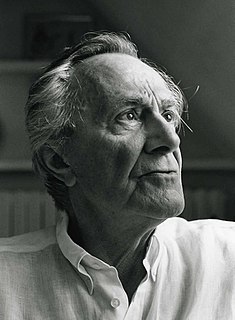A Quote by Yuval Noah Harari
Increasingly, our decisions will be made by the algorithms that surround us. Whenever there is a big dilemma, you just ask Google what to do. And what kind of life is that?
Related Quotes
Here, I think, lies our real dilemma. Probably we cannot, certainly we shall not, retrace our steps. We are tamed animals (some with kind, some with cruel, masters) and should probably starve if we got out of our cage. That is one horn of the dilemma. But in an increasingly planned society, how much of what I value can survive? That is the other horn.
We are shaped by stories from the first moments of life, and even before. Stories tell us who we are, why we are here, and what will become of us. Whenever humans try to make sense of their experience, they create a story, and we use those stories to answer all the big questions of life. The stories come from everywhere--from family, church, school, and the culture at large. They so surround and inhabit us that we often don't recognize that they are stories at all, breathing them in and out as a fish breathes water.
Most of us think that decisions such as where shall I live, with whom shall I partner, what shall I pick as a career for my life are the most important decisions that we make. But from the point of view of the universe these decisions are not that important. Within you, you have already made decisions about who you are, what the universe is and how you will relate to other people and how you will relate to the universe and these decisions are creating consequences in your life moment by moment.
When we first got married, we made a pact. It was this: In our life together, it was decided I would make all of the big decisions and my wife would make all of the little decisions. For fifty years, we have held true to that agreement. I believe that is the reason for the success in our marriage. However, the strange thing is that in fifty years, there hasn’t been one big decision.
Google's a strange place. When I met Eric Schmidt, he said, "If you are kind to everybody, then you will make good decisions because people will give you good information, and if you are truthful to everybody, they will be truthful to you." That's what's different about Google. They screw up and make mistakes, but they genuinely mean the good stuff about "don't be evil."








































